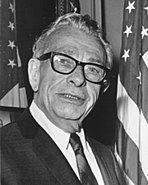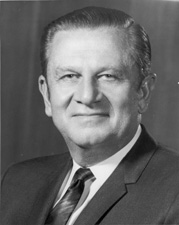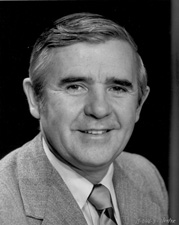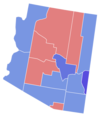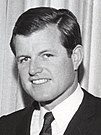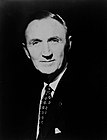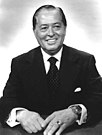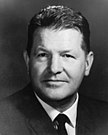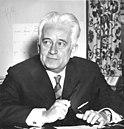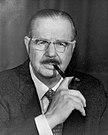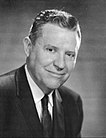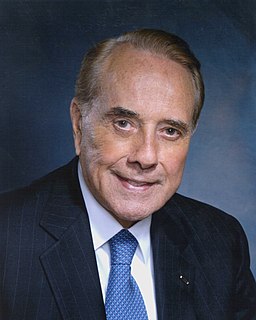
The 1994 United States Senate elections were elections held November 8, 1994, in which the Republican Party was able to take control of the Senate from the Democrats. In a midterm election, the opposition Republicans held the traditional advantage. Congressional Republicans campaigned against the early presidency of Bill Clinton, including his unsuccessful health care plan.

The 1988 United States Senate elections was an election for the United States Senate in which, in spite of the Republican victory by George H. W. Bush in the presidential election, the Democrats gained a net of one seat in the Senate. Seven seats changed parties, with four incumbents being defeated. The Democratic majority in the Senate increased by one from 54/46 to 55/45.

The 1986 United States Senate elections was an election for the United States Senate in the middle of Ronald Reagan's second presidential term. The Republicans had to defend an unusually large number of freshman Senate incumbents who had been elected on President Ronald Reagan's coattails in 1980. Democrats won a net of eight seats, defeating seven freshman incumbents and regaining control of the Senate for the first time since January 1981. The party not controlling the presidency gained seats, as usually occurs in mid-term elections.

The 1982 United States Senate elections were held on November 2, 1982. They were elections for the United States Senate following Republican gains in 1980. A total of four seats changed hands between parties, and the lone independent, Senator Harry Byrd Jr., retired. Democrats made a net gain of one seat in the elections. A special election in 1983 was then held after the winner of Washington's 1982 election died at the beginning of the term.

The 1980 United States Senate elections coincided with Ronald Reagan's victory in the presidential election. Reagan's large margin of victory over incumbent Jimmy Carter pulled in many Democratic voters and gave a huge boost to Republican Senate candidates.

The 1978 United States Senate elections in the middle of Democratic President Jimmy Carter's term. Thirteen seats changed hands between parties. The Democrats at first lost a net of two seats to the Republicans, and then one more in a special election. Democrats nevertheless retained a 58-41 majority.

The 1976 United States Senate elections was an election for the United States Senate that coincided with Democratic Jimmy Carter's presidential election and the United States Bicentennial celebration. Although almost half of the seats decided in this election changed parties, Carter's narrow victory did not provide coattails for the Democrats, and the balance of the chamber remained the same.

The 1972 United States Senate elections coincided with the landslide re-election of Republican President Richard Nixon. Despite Nixon's victory, Democrats increased their majority by two seats. After the elections, Democrats held 56 seats and Republicans held 42 seats, with 1 Conservative and 1 independent Senator. These were the first elections in which all citizens at least 18 years of age could vote due to the 1971 passage of the 26th Amendment.

The 1970 United States Senate elections was an election for the United States Senate, taking place in the middle of Richard Nixon's first term as President. The Democrats lost a net of three seats, while the Republicans and the Conservative Party of New York picked up one net seat each, and former Democrat Harry F. Byrd Jr. was re-elected as an independent.

The 1966 United States Senate elections was an election on November 8, 1966 for the United States Senate which occurred midway through the second term of President Lyndon B. Johnson. With divisions in the Democratic base over the Vietnam War, and with the traditional mid-term advantage of the party not holding the presidency, the Republicans took three Democratic seats. Despite Republican gains, the balance remained overwhelmingly in favor of the Democrats, who retained a 64–36 majority. This was also the first election that occurred after the Voting Rights Act of 1965 became law.
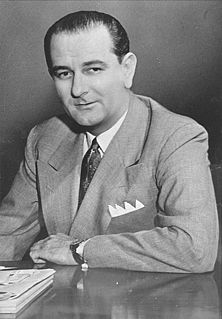
The 1958 United States Senate elections were elections for the United States Senate which occurred in the middle of President Dwight D. Eisenhower's second term. As is common in midterm elections, the party in the White House lost seats, but losses this year were more than usual, perhaps due to the high unemployment of the Recession of 1958. The Eisenhower Administration's position on right-to-work issues galvanized labor unions which supported Democrats. The launch of Sputnik may also have been a factor.

The 1956 United States Senate elections were elections for the United States Senate that coincided with the re-election of President Dwight D. Eisenhower. Although the Democrats gained two seats in regular elections, the Republicans gained back two seats in special elections, leaving the party balance of the chamber remained unchanged.

The 1950 United States Senate elections occurred in the middle of Harry S. Truman's second term as President. As with most 20th-century second-term mid-terms, the party out of the Presidency made significant gains. The Republican opposition made a net gain of five seats, taking advantage of the Democratic administration's declining popularity during the Cold War and the aftermath of the Recession of 1949. The Democrats held a narrow 49 to 47 seat majority after the election. This became the first time since 1932 that the Senate Majority Leader lost his seat and the only instance where the majority leader lost his seat while his party retained the majority.

The 1946 United States Senate elections were held November 5, 1946, in the middle of Democratic President Harry S. Truman's first term.

The United States Senate elections of 1944 coincided with the re-election of Franklin D. Roosevelt to his fourth term as President. The Democrats' large majority remained the same, but they lost one seat to the Republicans in a special election.

The 1958 New York state election was held on November 4, 1958, to elect the Governor, the Lieutenant Governor, the State Comptroller, the Attorney General, a judge of the New York Court of Appeals and a U.S. Senator, as well as all members of the New York State Assembly and the New York State Senate.
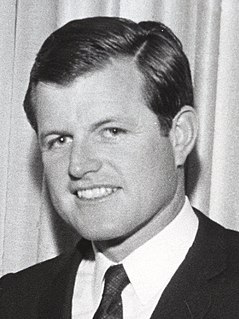
The 1970 United States Senate election in Massachusetts was held on November 3, 1970. The incumbent Democratic Senator Ted Kennedy defeated his challengers. This was Kennedy's first election run since the 1969 Chappaquiddick incident. Kennedy won 62.2% of the electoral votes, down from 74.3% that he won in the previous election in 1964, indicating that Chappaquiddick did affect his election popularity.

The 1964 New York state election was held on November 3, 1964, to elect a U.S. Senator from New York, as well as all members of the New York State Assembly and the New York State Senate.
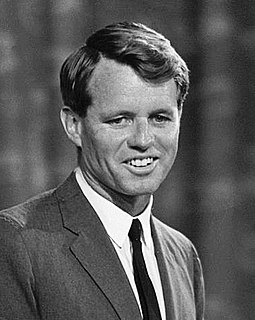
The 1964 United States Senate election in New York was held on November 3, 1964. Incumbent Republican U.S. Senator Kenneth Keating ran for re-election to a second term, but was defeated by Robert F. Kennedy.

The 1968 United States Senate election in Arizona took place on November 5, 1968. Incumbent Democratic U.S. Senator Carl Hayden did not run for reelection to an eighth term, with his longtime staff member Roy Elson running as the Democratic Party nominee to replace him. Elson was defeated by a wide margin, however, by former U.S. Senator and 1964 Republican presidential nominee Barry Goldwater. Prior to Goldwater's election, the seat had been held for decades by the Democratic Party under Carl Hayden, and has thus far remained in Republican Party control since.




